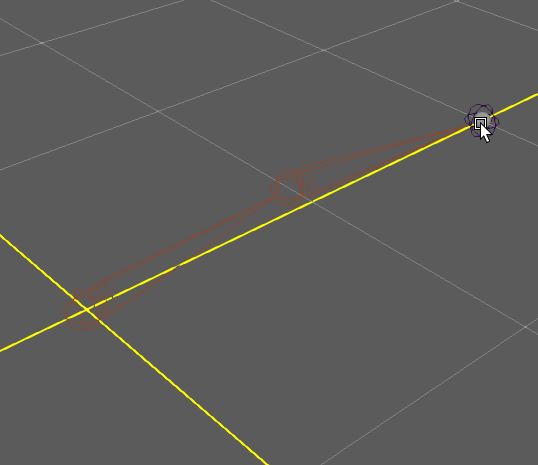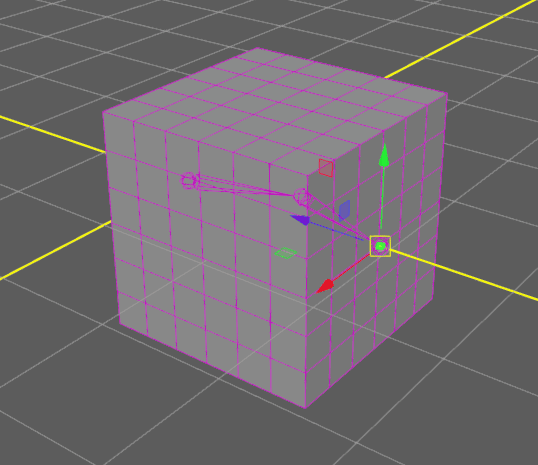inverse kinematics
“Inverse Kinematics is the inverse function/algorithm of Forward Kinematics. The Forward Kinematics function/algorithm takes a target position as the input, and calculates the pose required for the end effector to reach the target position — the pose is the output.” - wikipedia
Inverse kinematics (IK) is used for rigging things such as arms, legs, robot parts,
heck even car rigs can have IK setups in them.
If you take your hand and pick something up, did you rotate your humerus first… then your radius/ulna next… then your wrist, to get to what you were picking up? Probably not. You just stuck your hand out and grabbed it.
Sure all those bones rotated and moved… into the position required for you
to pick up the object, but you drove your hand out first to pickup the item
you wanted.
This is the traditional sense of IK in a nutshell. You take a point at the
end of the chain and you can pull it around, and the IK math solves an effector
to reach for that point in space, all the while it rotates all the elements
in the chain to obtain the best possible positions to get that effector
to the point in space that you’re moving around.
Here’s a look at that in Maya.

There are a few ways to approach this. But for now what you see above is
a joint chain that has an IK solver attached to it(because Maya’s native
solver attaches to joints), but if you wrote your own IKChain solver you could
have the controls as inputs to your node and output the joints from the node
instead.
Regardless of HOW you’re being forced to setup IK the concept of IK is
essentially the same, and once you get a “handle” on it you’ll be setting
up IK a lot (or using a tool to do it for you).
Maya has a few flavours of IK solvers and you’re going to need to do
some study to learn what each do etc;
SingleChainsolverRotatePlanesolverSpringsolver
There is also a splineIK approach that uses a curve(spline) to drive the joint chain`.
Here is our Cube (with more subdivisions to show the deformation clearer)
being driven by a rotatePlane IK Solver in Maya (which makes it act more
like a shoulder joint at the base, with an elbow break 1/2 way down).
